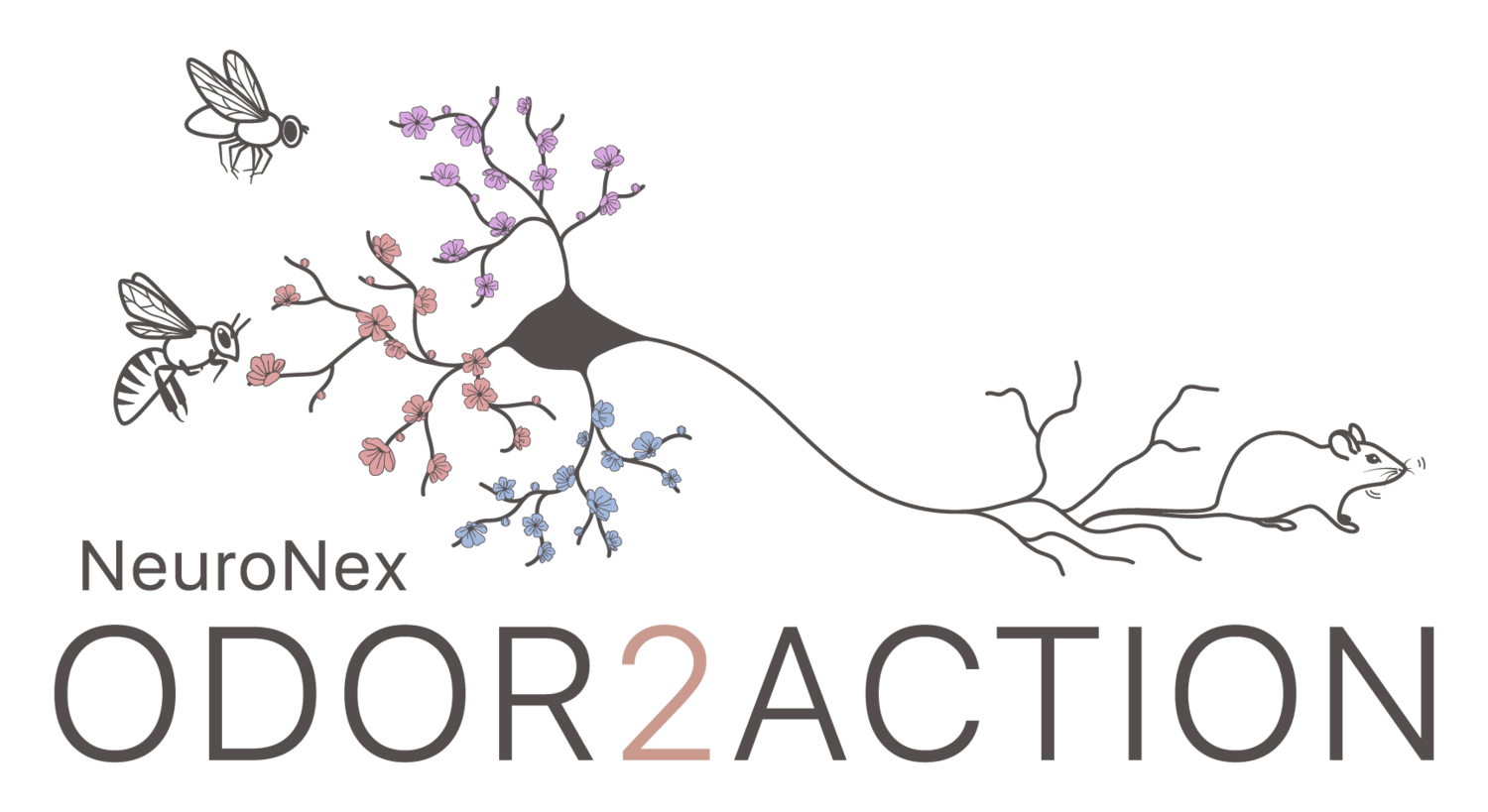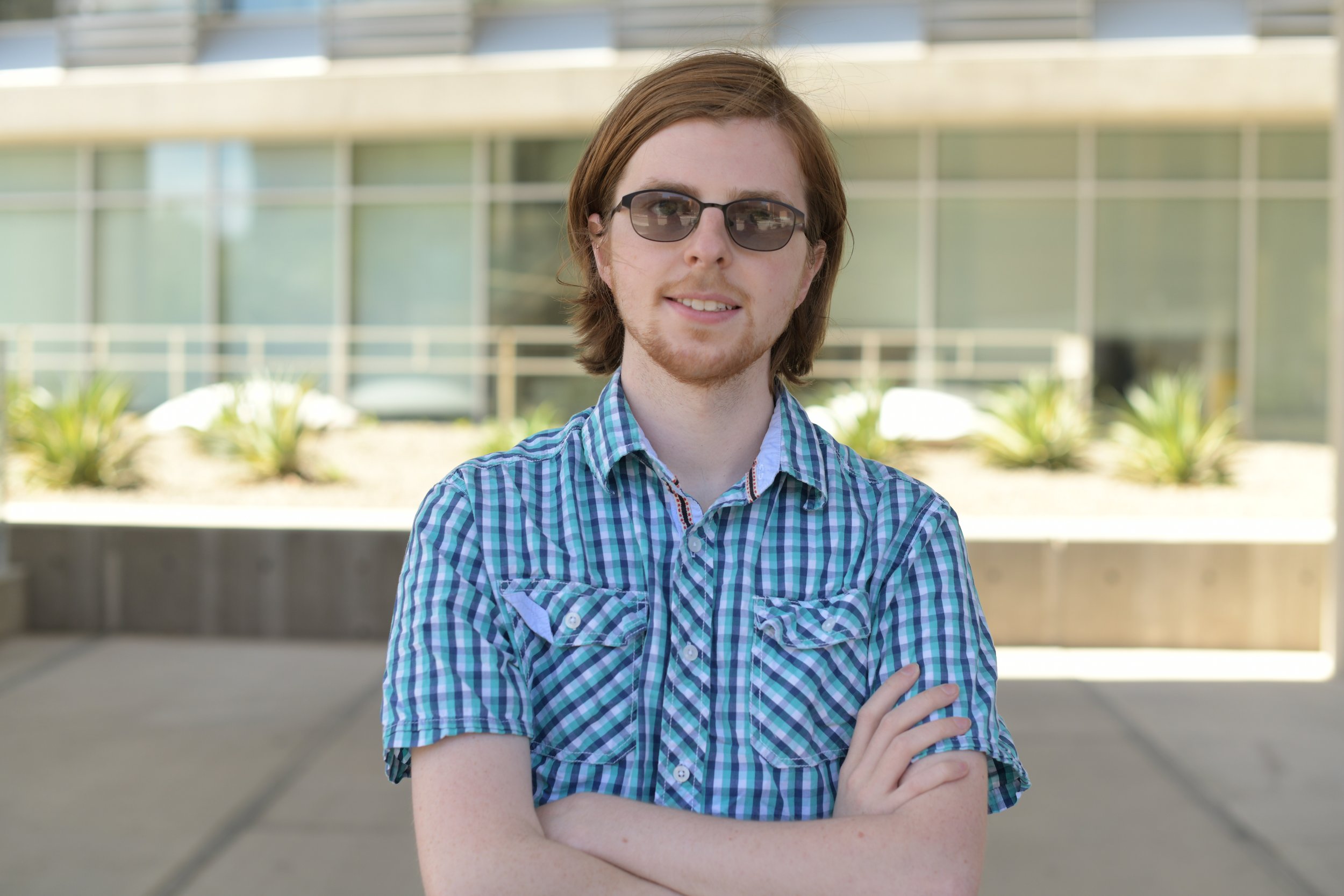Student Spotlight: Shawn Mahoney
The Odor2Action Network brings together international olfaction scientists with the goal of achieving an end-to-end understanding of how brains organize and process information from odors to guide adaptive behaviors. One of the network’s priorities is to train the next generation of scientists to view team science as a meaningful- even essential- part of their careers. We support trainees across the United States, Canada, and United Kingdom in fields spanning neuroscience, engineering, computation/mathematics, biology, data science, and beyond.
As part of our Student Spotlight series, we interviewed Shawn Mahoney, a PhD candidate at Arizona State University.
Odor2Action Affiliation: Smith Lab
How did you find yourself in the field of neuroscience? What piqued your interest in studying this field?
It may be a bit cliche, but I always wanted to study animal behavior ever since I was a child. I always found animals absolutely fascinating, and I wanted to understand how they experience the world. When I was considering my college options in senior year of high school, I found that Indiana University had added a new Animal Behavior major. This piqued my interest and sounded exactly what I was looking for, so I applied and was accepted. Throughout my program I had many great experiences, but probably my favorite part was how it helped me better understand what I liked about behavior. I took courses in genetics, neuroscience, zoology, etc., all of which helped me hone my own research interests. I found that I particularly gravitated towards topics centered around sensation and neurobiology. So when I decided to apply for grad school, I primarily focused on finding labs which focused on at least one of those two things. Fortunately for me, the Smith Lab at Arizona State University happens to do quite a bit of research in those fields, so after doing some research I once again applied and was accepted. At the same time, the Odor2Action network had just begun, so it was actually rather easy for me to jump in. And as I continue my research I find that I’m still learning more and more about my interests and goals, and I expect to continue honing them throughout the rest of my career as well.
What most excites you about being involved with the Odor2Action network?
My favorite part of working with the Odor2Action network is the opportunities it provides. Being able to talk with scientists at numerous institutions, with diverse backgrounds and research interests, has led to numerous collaborations, training opportunities, and new research directions I never would have considered if I had never joined. Additionally, the connections that I make within the group, both with faculty and other trainees, will remain with me even after this particular grant has ended, in the form of my own personal network of colleagues who I can continue to connect and collaborate with throughout my career.
Tell us about an impactful project you’ve worked on as a part of the network.
Currently I am in the process of finalizing a manuscript on the active sensing motions of bee antennae. This project aims to break down and categorize the different behaviors we see bees performing using their antennae in response to various odor perceptions. For example, how does a bee respond to an odor which denotes food, versus one which denotes punishment? We measure these movements using a variety of different techniques, from the objective positions of the antennae to the frequency of their oscillations. This project has a wide range of impacts, but there are two which I think are especially important. First, it sets a baseline for any future antennal work we might do. Being able to analyze other biological functions, like for example neural activation patterns, in the context of these behaviors will be an invaluable tool going forward. The second, and arguably more important, impact is on the field of sensory biology as a whole. Bees use their antennae for a variety of functions, from foraging to hivemate recognition, so it is important to know how the bee may behave when studying them within those contexts. Beyond just bees, the principles behind these movements could be applicable to other systems as well, such as other insects or even fish, frogs, and mammals. I am excited to finally be able to share the results of this project, as well as for any further research it may beget.
How will your training/experience impact the field of neuroscience?
I hope that my experience within this group will be simply the beginning of a long career studying neuroscience and sensory biology. Personally, I have made it a career goal to understand the path information takes from odor, to brain, to behavior. That is why I enjoy working within this research group. Working with so many people, all with different backgrounds and research focuses, is the only way to effectively understand this. There are many factors to consider, from the fluid dynamics of the odor, to the sensory abilities of a particular species, to the individual’s perception of the odor.
How will your training/experience impact society more broadly?
While quality research is of course a goal of mine, what I really hope is that my training makes me a better scientist in general. Especially nowadays, science goes beyond just pure research, and is now often a collaborative effort between many different people. In the real world, scientific systems are rarely isolated, so our study of those systems shouldn’t be isolated either. For me personally, being able to regularly speak with other scientists of different disciplines has been incredibly enriching. The collaborations and training within the network have allowed me to think about my own research in various ways I never would have considered by myself. Additionally, speaking with and presenting to people of different fields than my own has forced me to become a better communicator as well. Too often good science is locked behind a wall of jargon which requires its own degree to understand. I am guilty of this myself. However, speaking regularly with different people makes me break out of that mold and be able to better explain the ideas that I communicate. This has had impacts on many aspects of my life, including research, teaching, and interactions with the general public. Going forward, these skills will continue to increase in importance in an ever more connected world.
What is the next step for you after completing your degree?
After I complete my degree, I would ideally like to continue on a similar research tract to the one I’m already on. I am well aware that even after finishing my thesis, there will always be more to understand within the field. Thus, I hope to continue working in a lab, broadening both the scope of my research as well as my own knowledge. However, I am open to different options for how to do that. Regardless of the exact arrangement, though, what really matters most to me is the research.


